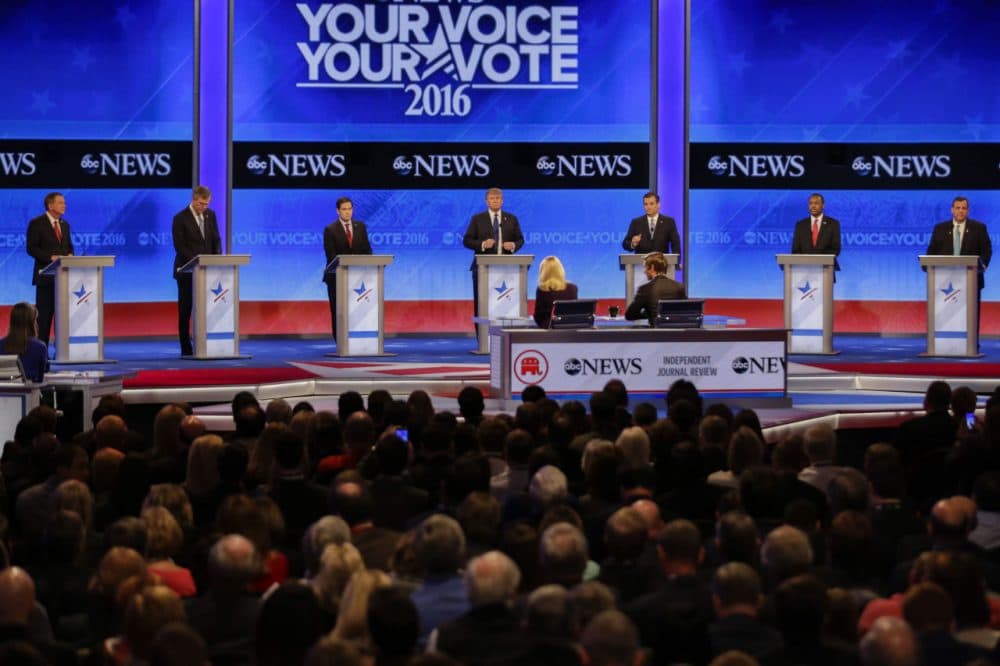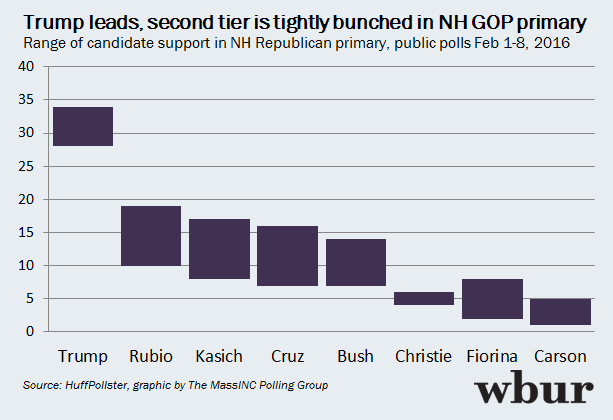Advertisement
New Hampshire Brings Last-Minute Fireworks After Most Polling Is Over

New Hampshire's primary is again earning its reputation as a high stakes contest where everything may be significant, and where things can change at the last minute.
Was the Republican debate on Saturday a game changer that will affect the outcome in New Hampshire? It sure could have been. Florida Sen. Marco Rubio had been on the rise following a strong performance last week in Iowa, and definitely did not have a good night on Saturday. If he finishes lower than expected, was it because of the debate? We may never know for sure since it happened after almost all of the public polling was already complete.
Things Still Change After Polls End
When major upheaval happens at the last minute, it's difficult to assess whether the polls were right when they were taken, if they end up different from the final result. Once Election Day has passed, a backward look to figure out when the race changed is often all but impossible. In a world ideal to pollsters, and those who collect and criticize polls for a living, there would be plenty of time to conduct more polls to fully assess the impact of every potentially seismic shift.
But we live in the real world. And it’s really not about us. We look in on the voters periodically to help tell the story of the race and look at how voters are making up their minds. We listen to their thoughts about what issues they prioritize and which candidate best reflects their values. But at the end of the day, it’s up to the voters. And there is plenty of evidence many of them make up their mind at the end of the day, after the polls have stopped.
Polling in primaries is harder even in a boring, low wattage race with just a few candidates. The lack of partisan cues for voters means far more volatility in the decision process than is present in general election polling. Figuring out who will turn out is another tough job, since it can change a lot of between primaries.
Larger GOP Field Complicates Poll Assessments
This year, it will be especially difficult to know whether the polls hit or missed. The large, messy field makes it harder to just rely on the margin between the winner and second place. With last minute headlines, and a tightly bunched second tier, assessing the polls’ rightness or wrongness will be a challenge. If Jim Gilmore or Ben Carson wins, we can say the polls missed. If Donald Trump loses, the polls missed. But almost any ordering of the second tier of candidates is possible.
When thinking about Tuesday's outcome in New Hampshire, it’s tempting to over-analyze the microscopic differences that separate one candidate from another in the poll averages. Earlier in the campaign, a second or third place finish in a poll was seen as consequentially different than fourth or fifth place, even if the difference between the bunch was only 1 or 2 points.
Now, it’s probably better to think of the candidates as a bunch rather than a line. After Trump, four other candidates have polling numbers that are nearly indistinguishable from one another: Rubio, Kasich, Cruz and Bush. And the candidates each have done things in New Hampshire that may have changed their numbers in the last few days. A fifth, Christie, turned in a solid debate performance this weekend and was largely responsible for Rubio’s difficulties.

A few internal polls are rumored to show Christie and Kasich doing better coming out of the debate, but they are little more than Internet legends at this point. It’s unclear as of now whether there will be any public polling conducted fully after the debate beyond a single robo-poll done in just one day. So we may never know for sure what impact the debate.
So Who's Right And When?
If Christie and Kasich finish ahead in the voting relative to their poll numbers, were the polls wrong? Or did they reflect the reality at the time? That’s often the question when polls are different than the final margin. If the 2008 primary were held the day before Hillary Clinton’s now-famous tears in a New Hampshire diner, would Obama have won? It’s ultimately unanswerable. This year, there is plenty of anecdotal evidence to raise the specter of a last minute shift, but not enough time to confirm it.
For pollsters, it gives us heartburn, but it’s part of the gig. We do our best to capture the vote as it would look if it happened that day. But things can change right up until the votes are cast, and that's the way it should be.
Steve Koczela is president of the MassINC Polling Group, which conducts WBUR's polling, and a regular contributor to WBUR Politicker. He tweets at @skoczela.